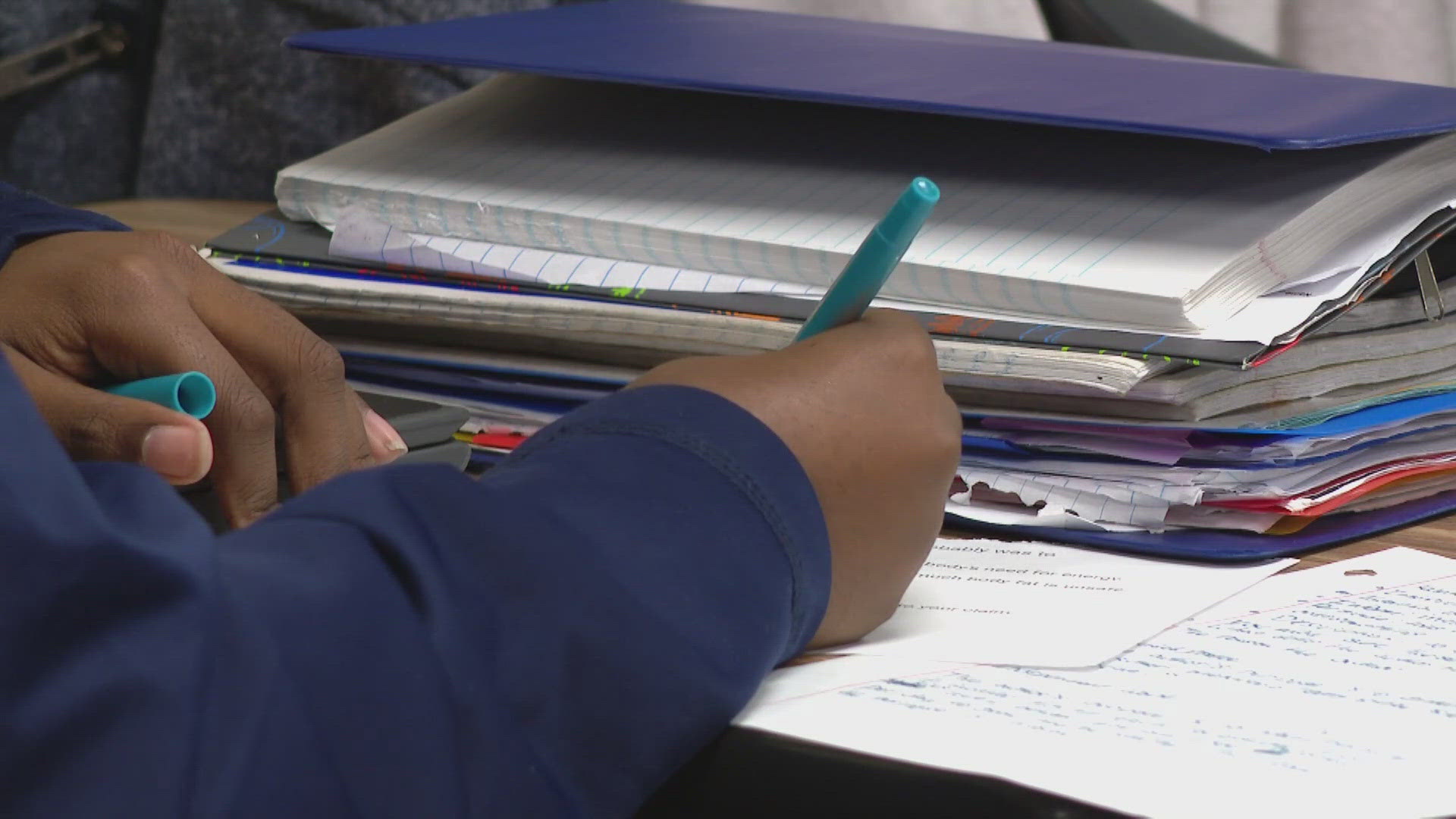INDIANAPOLIS — A newly-formed nonprofit group says Indiana's public school districts should have to share property tax revenue with charter schools.
The Indiana Charter Innovation Center represents about half of the state's 123 charter schools. Its CEO, Scott Bess, launched Purdue Polytechnic High School and, in his new role, told 13News that funding parity is the center's key legislative objective during the upcoming legislative budget session, which begins Jan. 8.
About 5% of Indiana's K-12 schools are charter schools. They are public schools that operate independently of public districts and are overseen by appointed, nonprofit boards of directors and "independent authorizers."
While charter schools get state and federal funding, they currently do not get local property tax revenue. Bess said that makes it difficult to provide services, like bus transportation or extra-curricular activities.
"Charter schools have always had to pay for those things out of their state funding, which means funding that's really meant for the classroom has to be diverted to pay for rent and bonds and buses, and everything else," he said.
Bess said it comes down to the belief that public education dollars should follow the student.
"When parents are choosing to send their children to another public school like a charter school, the money should follow them," he said. "Let's use the money that's there more equitably and get that money to the places where they're actually serving the children."
According to the Indiana Charter Innovation Center, enrollment in charter schools has grown over the last decade and today, "nearly 60% of students within Indianapolis' center-city attend either public charter schools or Innovation Network Schools, which are similar to charters but operate in contractual agreements with school districts."
Bess said he understands property taxes will be a big issue in the upcoming legislative session. Lawmakers must pass a new, two-year budget with lower-than-expected tax revenues in general. But Bess said they aren't asking for a tax increase.
"We're just asking for what's [already] there to be divided fairly," he said.
Bess added they would ask for a phased-in approach. He said that would give school districts with declining enrollment – and the accompanying tax dollars – time to plan and make necessary adjustments.
"I think we're optimistic in the sense of this fits the philosophy that the legislature has set," Bess said. "Whether it's everything we want, that almost never happens. It's really this idea of starting the conversation."
The Indiana State Teacher's Association is the union that represents teachers in public districts.
In a statement, a spokesperson told 13News the ISTA opposes property tax revenue sharing:
"Local property tax dollars are intended to support community schools that are accountable to elected boards and serve all students. Diverting these funds would undermine the stability of public schools, which educate over 90% of Indiana's students, while charter schools—lacking the same public accountability—have experienced significant instability, with roughly one in three Indianapolis charters closing since 2001. Recent legislation already requires public schools to share voter-approved referendum dollars with area charter schools, further straining their ability to meet students' needs.
Public schools remain the cornerstone of their communities, providing stability and essential services to all students. We urge lawmakers to prioritize equitable funding solutions that support all students without jeopardizing the resources, programs and facilities that traditional public schools rely on to serve their communities effectively."

